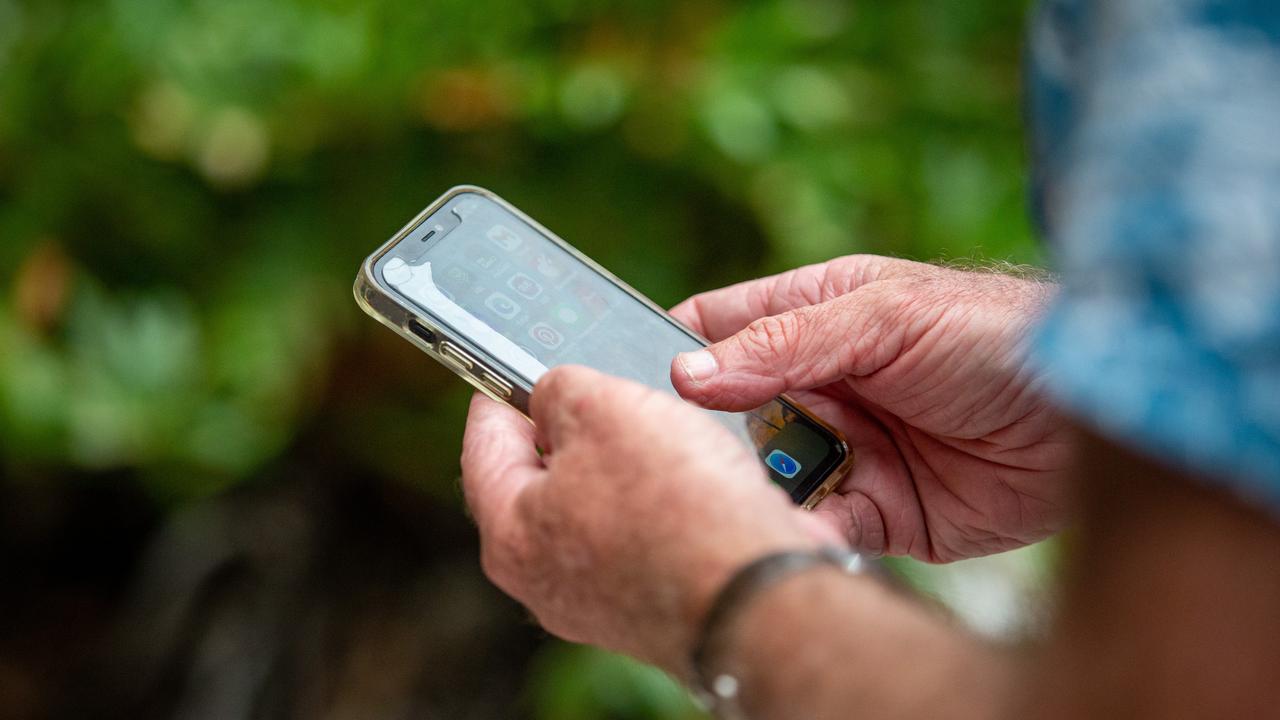Nigerian scammer turned cybersecurity consultant tells all about his life of deception
Countless women across the globe thought they were dating the ‘perfect’ man while a teenage uni student made a fortune out of their ill-fated quests for love.

Less than a decade ago, Nigerian man Chris Maxwell had so many female victims on the go that he ultimately lost count.
To his victims, who he says primarily consisted of divorced women, including Australians, ranging from their late 30s through to their 60s, he was a charming, relatable American soldier looking for love.
Little did they know, they were falling in love with and sometimes sending tens of thousands of dollars to Maxwell – a Nigerian university student in his late teens.
Now a cybersecurity consultant for a firm aimed at identifying catfish, Maxwell has revealed to news.com.au how easy it was to fall into a life of romance scamming, how lucrative it was, and its immense presence, even at an ingrained cultural level, in the African nation which has sadly become synonymous with the despicable schemes.
Entering deception
Maxwell’s hometown and Nigeria’s capital, Abuja, is a notorious international hub for scams, and even from a young age, it was widely known scamming offered a way out of poverty.
“You have automatically have scamming experience growing up in Nigeria, you automatically know everything about it because it’s so widespread,” he told news.com.au.
“You grow up knowing about it like any other job or source of income.”
Maxwell’s scamming career kicked into gear when he moved away from his family home to board at university.

“My first school year was so tough; things were not going smoothly,” he said.
“So in my second year, I just wanted to make money; I wanted to live like a big boy.
“I wanted to make enough money to get what I wanted and dress nice and stuff like that.”
Maxwell, now 25, soon fell into untold riches, netting an estimated $106,498 over his six-year scamming stint.
Comparatively, the national average income in his home country is equivalent to $3,274.
“We are a very, very poor economy, and we have bad governance,” he lamented.
“So many people make something for themselves through scamming because they make enough money to take care of themselves or their families.”
Lonely soldier looking for love
While using numerous online profiles, Maxwell said his most successful was the faux dating account of an American soldier.
“I would say I made over $4,500 from a person on average,” Maxwell explained, adding he told his victims he could not do video calls due to his made-up deployment with the military.
While plenty of victims would escape financially unscathed, Maxwell would take devastating and life-destroying amounts of money from others.
One such American woman was convinced to hand over $45,500 in digital transfers, he claimed, which led to her spiralling into depression and caused a rift in her family.

Maxwell said he often felt remorseful and guilty about his scamming, though he became desensitised to it the longer it went on.
“When I was new to this scamming thing, I used to feel bad and feel guilty,” he said.
He would keep unusual hours, talking to countless women around the globe on various platforms, leading to him feeling as if he was working a “full-time job”.
“At some point, I started making big money and making big plans. It turned out to be a full-time job,” he said.
“It’s like you’re getting paid for your job. So, at that point, I felt like I deserved it. I couldn’t feel any more guilt.”
Find tangible connections
Maxwell’s conscience, combined with a brush with the law, eventually brought his days of mass deception to an end, trading in his scamming career for a job as a cybersecurity consultant for the firm Social Catfish.
Maxwell told news.com.au that the key to staying safe while online dating is to focus on what is tangible.
“When you’re meeting a scammer online for the first time, they will sound really nice, like they’re perfect to you,” he explained, adding that artificial intelligence in the world of romance scams adds unknown and emerging layers to contend with.

“There’s nothing wrong with asking for a video call – ask them to “show me your face.”
“Most people who give out money don’t even know who they are giving the money to, don’t know their address, and you’ve not met in person.
“They don’t know if it’s actually real, have never done a video call, or even asked for evidence like something really tangible.
“Talk to them, hear their voice, see their face, and that will help you avoid being scammed.”
Real names and faced used for fake nightmare
More than 10 million loveseekers globally sought verification of their online partners through Social Catfish in 2023 – a company that verifies online identities using reverse search technology.
A recent data crunch just in time for Valentines Day unearthed a plethora of photos and videos stolen from real people’s social media accounts, as well as stock images and images of popular social media influencers or celebrities.
The firm further found a dramatic increase in scammers creating photos using artificial intelligence for nefarious purposes.

The firm stated the latter would generally target people recently widowed, with targeted fake images made to look like the victim’s late spouse.
In 2023, Australians were fleeced out of $33.6 million through romance scams.
According to the Australian Government’s Scamwatch, Australians aged 55-64 were the highest reporting age group, while 40.25 per cent of reports came from women and 57.83 per cent were from women.
Warning signs, Scamwatch states, include swiftly being made to feel special quickly, a reluctance to use social media platforms instead of opting for apps like WhatsApp, being encouraged to keep the relationship a secret from family and friends, and a reluctance to show themselves on camera.
Other things to look for include conflicting information between online profiles and what they tell you, constant talk of money or investments, particularly cryptocurrency and anger and threats if you don’t do what they ask.






